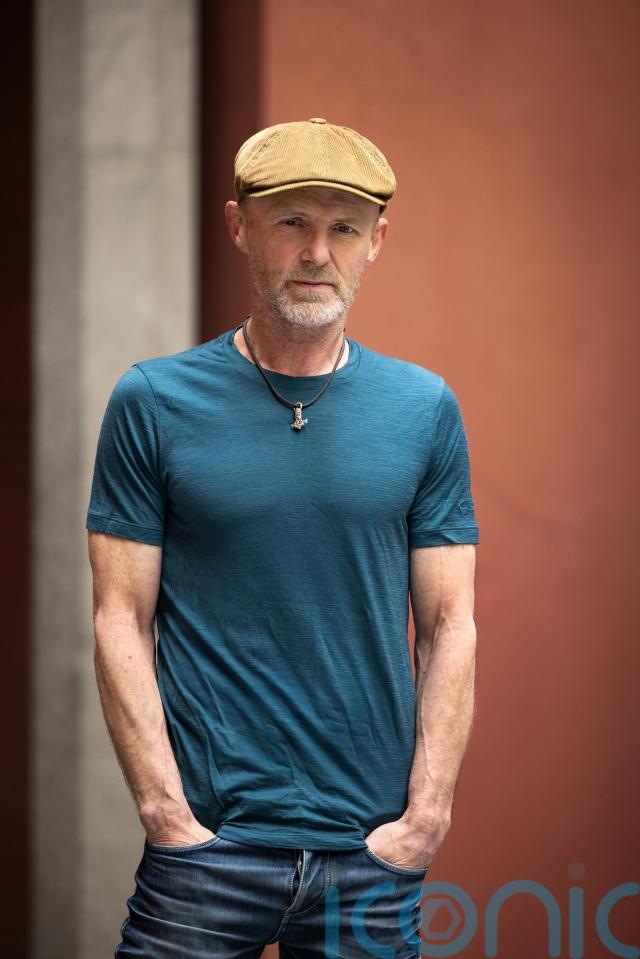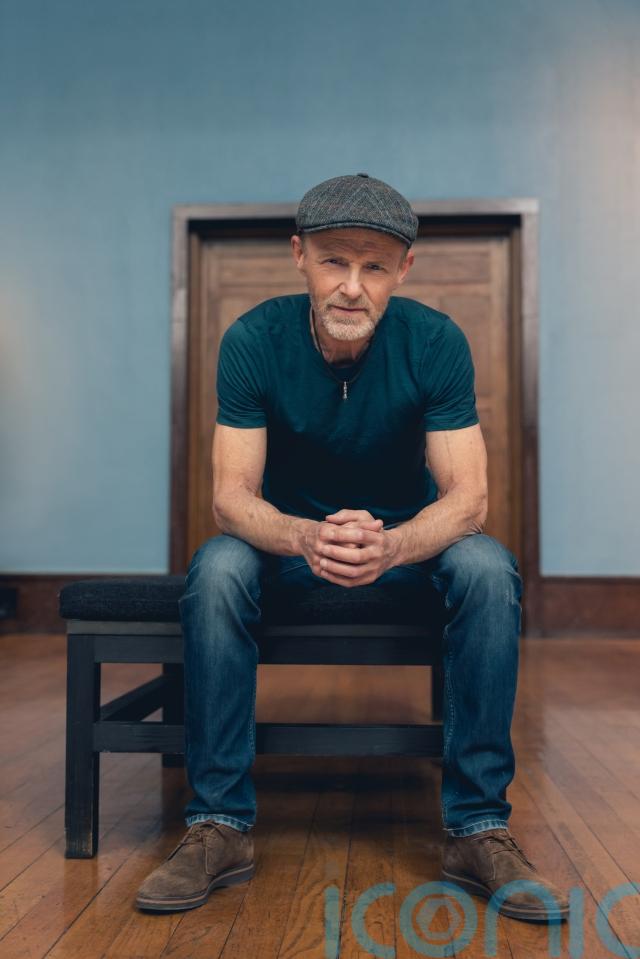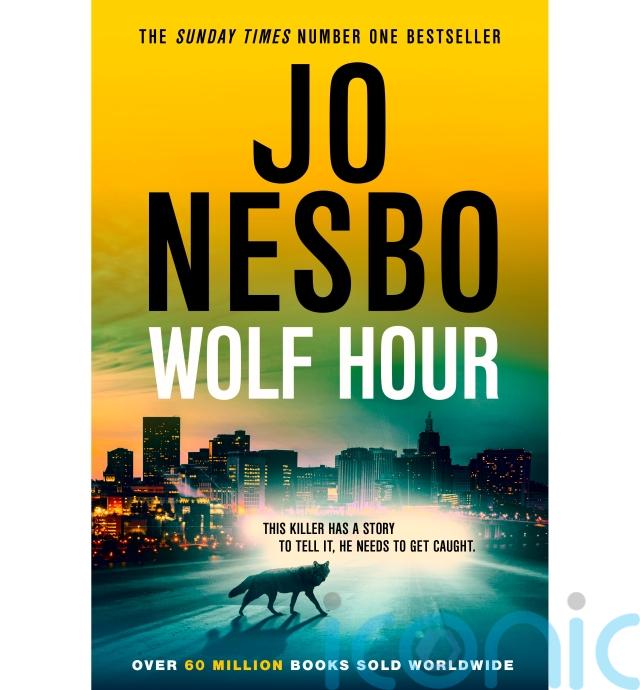
The undisputed king of ‘Nordic noir’, Jo Nesbo’s crime novels based around the detective character Harry Hole are among the bestselling in the world.
And now the 65-year-old is addressing the complicated issue of gun crime in the US, as his latest novel, Wolf Hour, based in Minneapolis, is released.
“My father grew up in New York so we always had a strong connection to the United States,” says the Norwegian author. But the decision to write about the city of Minnesota was no coincidence, in the latter half of the 19th century, thousands of Norwegians emigrated to the then territory due to economic hardship in Norway at the time and Minnesota’s opportunities to own farmland.
“I had relatives in Minnesota, [it’s] probably the state which had the largest contingencies of Norwegians coming there. I think it’s only compared with Ireland,” says Nesbo. “To me, Minneapolis felt like the most Norwegian state.”

Visiting the city to research the book he says felt like going back in time, “Around the [Central] Lutheran Church in Minneapolis, it’s like it had been stuck in the Seventies – they have kept up traditions that have been long abandoned and forgotten in Norway.”
“Minnesota is – although it’s not – sort of in the outskirts of the United States, in that we normally see Los Angeles and New York. It’s the real America. I was a bit curious. It’s not like I was going there to go soul searching myself, but maybe soul searching my roots, my people’s attitudes.”
Minnesota was of course the location of the 2020 murder of George Floyd, a black man killed by a white police officer who kneeled on his neck for more than nine minutes.
His death shone a light on the treatment of people of colour by US police, and sparked worldwide protests against systemic racism in the Western world generally. The infamous tragedy is referenced in Nesbo’s Wolf Hour – it would seem strange not to – given one of the two parallel timelines is set in 2022. This side of the story is told from the perspective of Norwegian crime writer, Holder Rudi, the other, in 2016, from suspended, down-and-out police officer Bob Oz. Both are conducting investigations into the same series of puzzling murders, the weapon of choice being guns.
“Up until the riots and George Floyd, Minneapolis was probably considered a safe city, [although] I think you have racial tension in all big American cities, and you have violence in all American cities,” Nesbo says, but the gun ownership debate is spreading far and wide. “For most Western countries outside the United States, we’re looking at what’s going on in America with astonishment, you know, how can this be going on?”

But spending some time in the city made him realise how complex the issue is. “If we go to a country [where] it seems that there are simple answers to questions, and you go there and try to research what’s happening, you end up being more confused and less convinced that there are any easy answers.”
He insists Wolf Hour isn’t making any particular statement about gun crime – “I don’t see fiction as a good way to give answers to complicated questions, but I do think that fiction is good for asking interesting questions and suggesting answers, or at least, trying to look at the question from different angles.
“I’m looking at it from the other side, like this girl [I met] who grew up in the south of Chicago and her family being a victim of violence, the gun she kept under her pillow was the only thing that she could use to defend herself.
“Of course, I don’t think it’s possible to write anything without, at some level, giving away your points of view, but I’m not a missionary.
“And unless we move into an even more polarised society, you have to be willing to let your guard down and really have a close look at the values of people that you don’t necessarily agree with.”
Writing dark – sometimes quite violent – storylines must take its toll though. “I think it probably does in some way. But then again, I do return to those places so I guess a part of me is driven to those places. My imagination would search out places like that.”
One of the secrets to his long-lasting success is his ability to examine life from all angles.
“If I saw a murder I would try to imagine how it was being the victim, but I would also imagine how it would be like being the murderer. So again, I want to look at the human condition from as many angles as I can – the same as with politics.”
Writing his novels is all-encompassing, he notes. “I go into this bubble and the people that are close to me, they know I need to go into that bubble so that’s OK. Sometimes I can even say, ‘I’m sorry, but I’m in that bubble now. [They say] Yeah we know, you don’t have to talk, you don’t have to contribute socially. You just get quiet for a few months.”
Nesbo will write until he loses interest in his own writing, he says. “There’s still so many stories I would like to tell. So as long as I have that – I wouldn’t say it’s ambition – sort of curiosity.
“I’m blessed in the way [that] I’m not that worried or scared to fail. I’ve failed at a lot of things in my life and it doesn’t really bother me that much. I have a few friends that are probably as talented as me when it comes to writing, or even more talented, but I think what is holding them back is the fear of failure.”
So will we see detective Bob Oz become as popular as Harry Hole? “I tend to write follow-ups to my less successful books. I tend to like the characters more in the books that don’t sell that well!” Nesbo says, with a laugh. “Maybe I’ll make an exception for this book because I really like Bob Oz, and I wasn’t prepared for him to be that popular.”

Wolf Hour by Jo Nesbo is published by Harvill, priced £22.00. Available now.
Subscribe or register today to discover more from DonegalLive.ie
Buy the e-paper of the Donegal Democrat, Donegal People's Press, Donegal Post and Inish Times here for instant access to Donegal's premier news titles.
Keep up with the latest news from Donegal with our daily newsletter featuring the most important stories of the day delivered to your inbox every evening at 5pm.